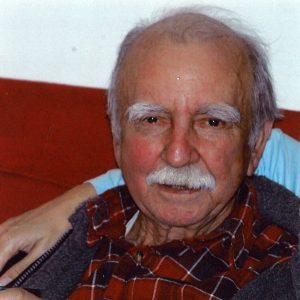When it comes to investing, we all know that the end goal is to build wealth. But most people fail to see the potential of investing with an abstract goal like wealth building.
We understand that investing increases our wealth and makes us financially secure, but most of us fail to comprehend the extent to which investing can impact our financial situation in the long run.
Today, we have two real-life stories where consistent and patient investing over a long period showed tremendous results and changed the financial condition of the investors drastically.
Ronald Reed: janitor turned millionaire

Ronald Reed grew up in a poor farming family in Vermont, USA. He was the only high school graduate in his entire family. After school, he enlisted in military service. But after being discharged from the military, he was unable to find any well-paying jobs due to a lack of higher education.
Eventually, he worked as a gas station attendant for 25 years. After retiring as a gas station attendant, he started working as a janitor at a local store. He worked there for another 17 years.
He shocked the world upon his death in 2014 when it was discovered that he had amassed $8 million. So how did he do it? How does one become a millionaire with a minimum wage job?
The answer is much simpler than you think. It’s through consistent investing and living a frugal life.
He consistently invested in companies that paid good dividends and reinvested those dividends to purchase additional stocks. He read about the world of investments through ‘The Wall Street Journal’ . With time, he became a wizard at picking good stocks.
He also diversified his investments to minimize the risk of loss.
Most people, including his children, did not know about the extent of his wealth. The reason was his humble lifestyle,
Mr. Reed spent mindfully, his only large spending were $12,000 for the house he bought, a second-hand Toyota Yaris he used to drive, and the cost of his step-children’s education.
He would usually walk to most places. And the rare times that he drove, he would park the car a little far to save on the parking cost. Even the coat he used to wear was held together with safety pins, which often made people believe he was poor. But in reality, he was just living below his means.
Ronald Read started small but he spent 60+ years quietly accumulating equity in some of the most successful businesses in the world.
Upon his death, he donated most of his $8 million wealth to charity. He donated $1.2 million to Brooks Memorial Library from where he used to borrow books and $4.8 million to Brattleboro Memorial Hospital, the cafe at which he used to eat frequently.
Earl Crawley: parking lot attendant worth $500,000

Like Ronald Reed, Earl Crawley also came from a poor family. He started earning at the age of 13, but most of his money was taken by his mother to provide for their family.
He was also dyslexic which is why he was not good at studies. Beyond manual work, there was not much scope left for him to do well in life. But he wasn’t disheartened by his situation.
His mother instilled the habit of living within meager means while managing to save money from a very young age.
He used this habit to sustain his family with an $80/ week salary. He knew that he had to be smart with his money to live a comfortable life.
So, he was heavy on sayings. He started initially with stamps, and saving bonds and later moved to invest in mutual funds consistently. Eventually, he was investing $25/month in mutual funds and he did that for 15 years consistently.
Later, he started investing directly in blue-chip dividend-paying stocks. He even reinvested his dividends. His portfolio included stocks like IBM, Coca-Cola, Colgate Palmolive, etc.
By 2007, he had a fully paid house and a portfolio worth $500,000. Not only was his portfolio worth half a million dollars, but he was also earning a tax-free annual dividend of around $15,000 to $20,000.

So the question is, how does a barely educated minimum wage earning person come to know about stocks and investments?
He worked at a parking lot which was near a financial institution and regularly came in contact with financial experts and professionals.
One such well-wishing person told him that he should consider investing since he didn’t have the potential to earn more.
He took the advice and started asking investing questions to anyone who would spare time to listen. Eventually, he learned enough to start investing with a small amount. The money he invested kept on compounding to build him considerable wealth in the long run.
He still follows the same investment policies and now gives investment classes to his church community.
What does their investing journey teach us?
Investing is not just for the wealthy:
Most people, especially in India, consider investing as something that is only for the wealthy people who have surplus money. But the story of Earl Crawley and Ronald Reed proves that investment is for everyone and it is especially beneficial for people with low income and those that don’t have a secure financial future.
Long-term investment gives real results:
Both their stories show the true power of compounding in action. Long-term, patient, and consistent investments have the potential to accumulate considerable wealth and change your financial future for the better.
Diversified portfolio is the key:
Both of them diversified their investment in a variety of instruments. This helped them avoid losses. Ronald Reed even invested in Lehman Brothers and that went south but because he had diversified his portfolio, he was not affected by it in any significant way. Which shows the extent to which diversification can minimize losses.
Frugality is the best policy:
Minimizing your spending and living within your means is the main key to creating a financially secure future. Even billionaires like Warren Buffett and Mark Zuckerberg have admitted to living a frugal lifestyle instead of indulging in luxury.
Refraining from instant gratification and indulging in expensive habits beyond our means can slowly destroy your financial well-being. Creating true wealth is not about having enough money to live a lavish lifestyle but about creating a financially secure future.
Bottom line
These are only two stories, there are many other stories like these where regular people like you and me have created significant wealth by having a disciplined, consistent, and patient attitude towards investing.
If you are still waiting for the right time or more money to start investing, remember the best time to start is now and you can start a SIP with just ₹100 on Kuvera.
Read more: Zen And The Art Of Investing
Watch/hear on YouTube: SIP, the right start to your dreams











